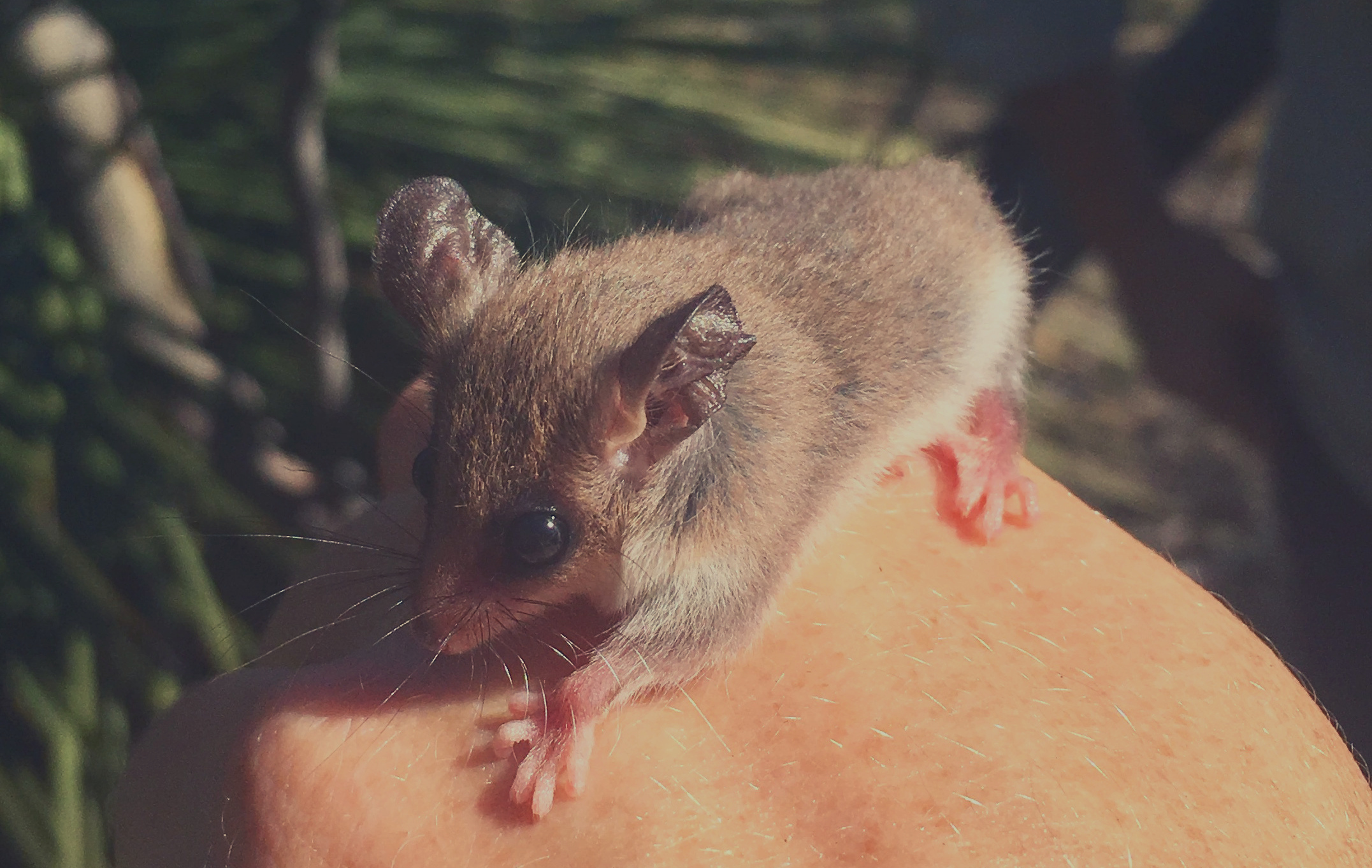
WESTERN PYGMY POSSUMS
They are nocturnal creatures that live in trees. They can breed at any time of year with up to 3 consecutive litters; with an average 2- 4 young. Adults are small with combined head and body length of 60 mm to 100 mm, about as long as your finger. They use short term torpor to conserve energy. Their population fluctuates with rainfall and food availability and will travel to find flowering plants. Believed to play a role in pollination of trees and shrubs.
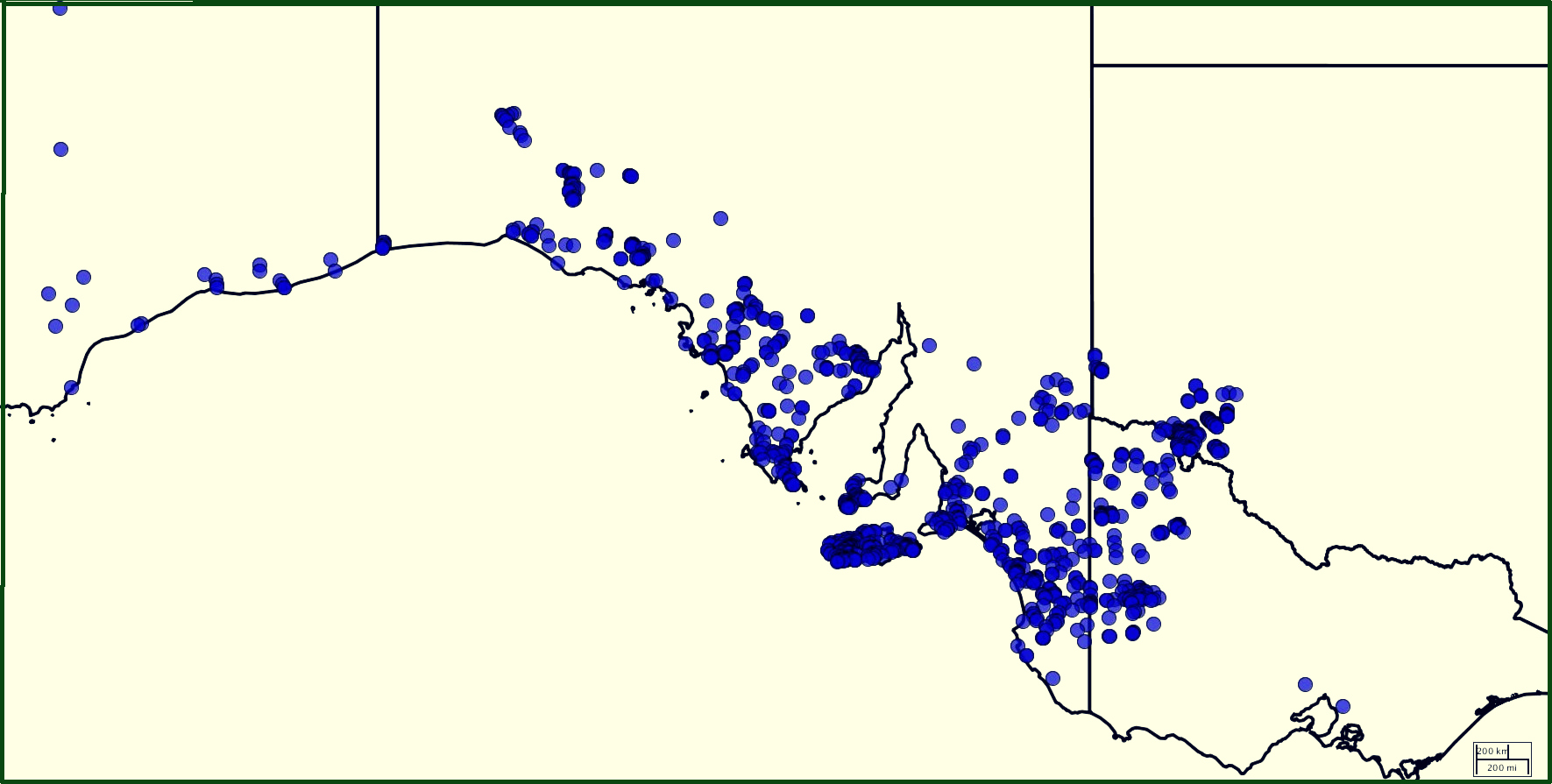
Western Pygmy Possum Project 2017 till now
This project all started back in June 2017, when a landholder brought a small mouse like creature into my Cambrai office, that had drowned in a bucket of water. The bucket was under a mallee tree on a property north of Sedan. The landholder thought it looked a bit different with how its tail was curling around and on closer inspection you could also see that its paws looked like they could grip onto things.
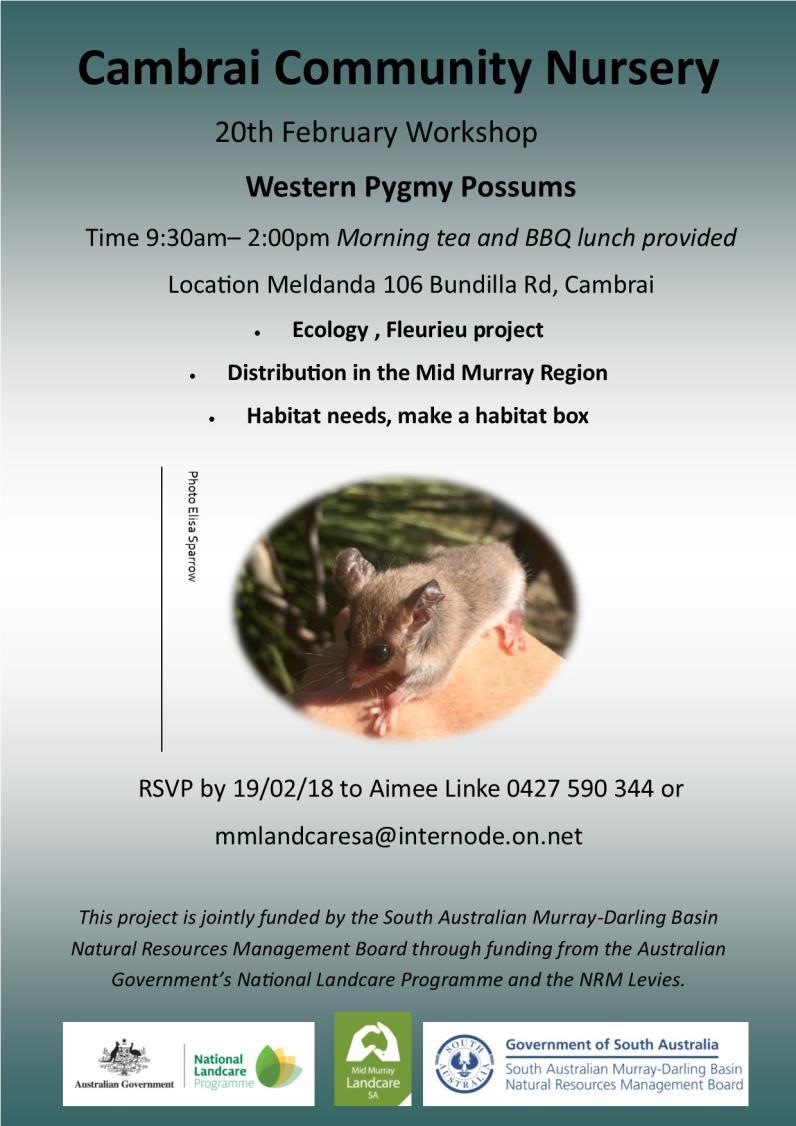
This got me thinking about these creatures in the area, firstly the property this possum was found on there was only a small patch of Mallee and surrounded by cropping or cleared land and secondly the risks people have on their property to these creatures, like rubbish left under trees that can collect water and provide potential drowning vessels.
It was interesting to hear of other possums losing their life in the same way, so a new project was born to help inform people about keeping their properties safer and find out where else these possums might be.
Through funding from the Murraylands and Riverland Landscape Board we embarked on our new project in 2018.
We started with a community engagement workshop at Meldanda, with guest speaker Dr Elisa Sparrow who had been working on a successful WPP nest box project on the Fleurieu Peninsula.
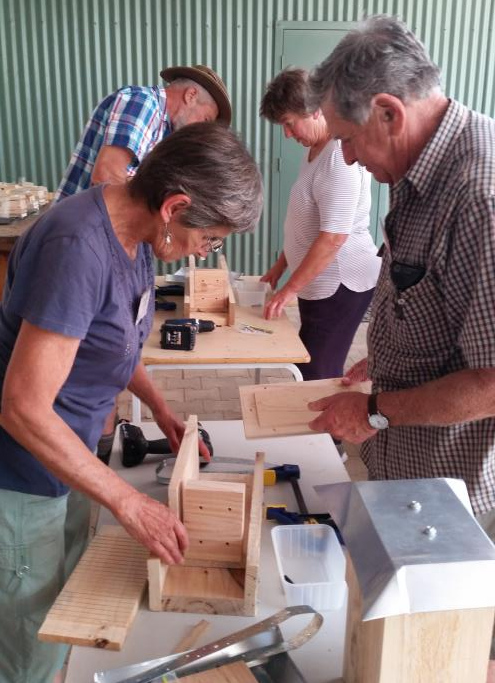
Followed by our first of many, habitat box building workshops for the possums. The box design was based on what Dr Elisa Sparrow used on the Fleurieu Peninsula Project, but ours were smaller and did not open at the front.
The nest box workshop was a great success, one of our Landcare volunteers, Don Lester made up what we call “box kits” that are all the pieces required to assemble a box. Brilliant design that makes it easier at a workshop to engage people of all ages and capabilities to assemble a box.
Participants really enjoyed this type of hands-on workshop where they get to make something they can take home, install and provide habitat. It was really empowering for some people, especially a lot of female participants, they seemed to love getting their hands on the electrical tools and making things.
We made up an information brochure that could be handed out about the possums and what people could do on their properties to help, which includes controlling grazing animals in the scrub, especially browsers like kangaroos and goats. Keep cats inside all the time but especially at night.


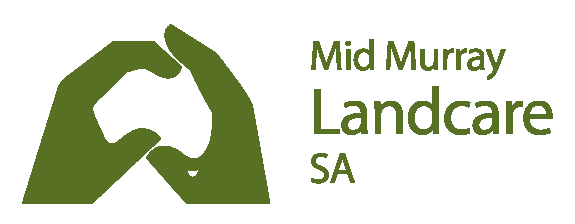
 Western Pygmy Possum Brochure
Western Pygmy Possum Brochure 